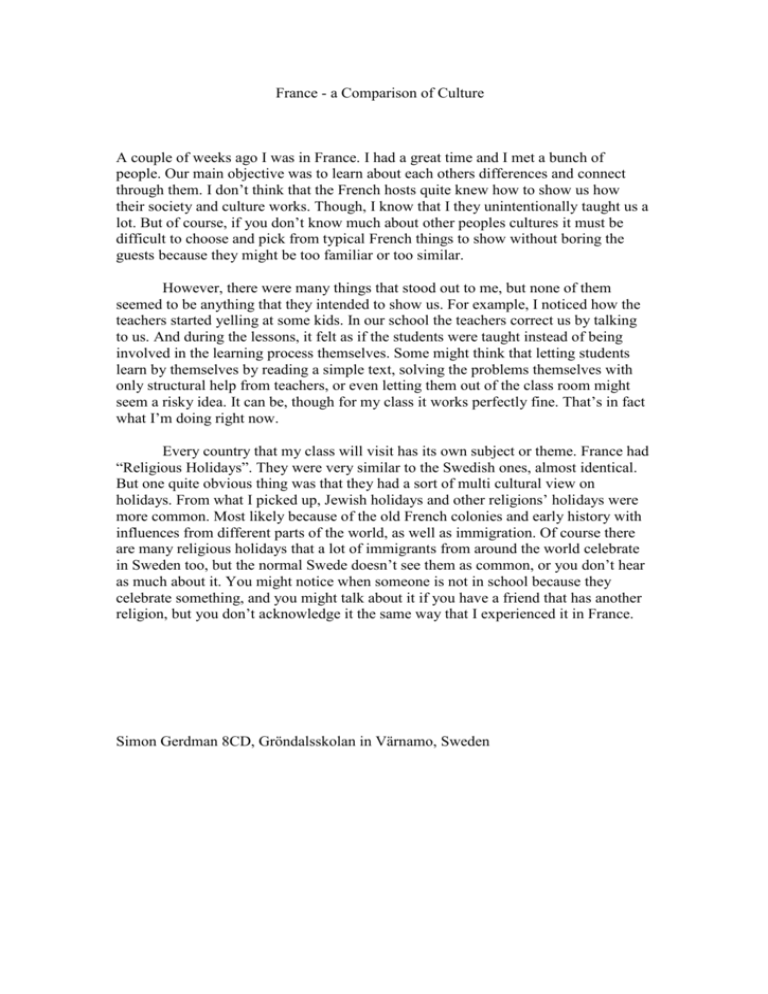Have you ever noticed how a seemingly simple request in one culture can spark confusion or even offense in another? This is often a result of cultural differences, particularly when it comes to how societies approach uncertainty. France, for instance, is a prime example of an uncertainty-avoiding culture. This means that the French tend to be uncomfortable with ambiguity and prefer clear-cut rules and structures in their daily lives.

Image: www.victoriana.com
Understanding the concept of uncertainty avoidance is crucial for navigating cultural complexities. It helps us appreciate the unique values, behaviors, and communication styles of different societies, making it easier to build genuine connections. In this article, we’ll delve deeper into the characteristics of an uncertainty-avoiding culture, explore how France exemplifies these traits, and examine the implications of this cultural dimension in various aspects of life, from work to personal relationships.
Understanding Uncertainty Avoidance: A Cultural Compass
In the realm of cultural psychology, uncertainty avoidance refers to the extent to which members of a society feel threatened by ambiguous situations and strive to minimize uncertainty through strict rules, regulations, and procedures. Cultures with high uncertainty avoidance tend to value stability, predictability, and conformity. They embrace explicit guidelines and clear hierarchies, seeking to reduce the risk of ambiguity and unexpected outcomes.
France: A Nation Embracing Structures and Rituals
France, with its deeply rooted history and traditions, is a prime example of an uncertainty-avoiding culture. From its formal education system and bureaucratic processes to its structured social life and strict adherence to etiquette, France prioritizes clarity and predictability in almost every aspect of life.
Formal Education: A Foundation for Structure
The French education system is highly structured, emphasizing standardized tests, rigorous coursework, and uniform curriculum. This approach reflects the value placed on knowledge, discipline, and the pursuit of excellence, reflecting a deep-seated desire for order and predictability. From primary school to higher education, French students learn to navigate within defined frameworks, fostering a sense of certainty in their academic journey.

Image: studylib.net
Bureaucracy: A System for Order and Control
The French bureaucracy is known for its intricate processes and comprehensive regulations, often perceived as complex and time-consuming by outsiders. However, this system reflects a desire for order and control, ensuring that every decision and action is carefully considered and documented. While this system can sometimes be frustrating, it provides a sense of security and predictability, particularly when dealing with important matters like taxes, healthcare, and legal procedures.
Beyond Structure: The Importance of Rituals and Traditions
French culture is rich with rituals and traditions that serve as pillars of stability and shared identity. From the elaborate rituals surrounding meals, starting with the traditional aperitif and culminating in a multi-course feast, to the meticulous observance of holiday celebrations, these practices provide a sense of continuity and predictability, connecting generations past and present.
The Art of Conversation: A Structured Exchange
Even casual conversations in France are often structured, following specific rules of etiquette. The importance of using formal language with strangers, avoiding direct confrontation, and engaging in thoughtful and polite exchanges is deeply ingrained in French culture. These social norms minimize uncertainty and create a sense of shared understanding, promoting harmony and respect within social interactions.
Navigating Cultural Nuances: The Importance of Sensitivity
While understanding the characteristics of an uncertainty-avoiding culture can be helpful, it’s essential to approach cultural differences with sensitivity and respect. Stereotypes can be harmful, and generalizations should be avoided. It’s important to recognize that within any culture, there is a spectrum of individual personalities and preferences.
Furthermore, the level of uncertainty avoidance can vary across different generations and socioeconomic groups within a culture. For instance, younger generations in France may be more open to experimentation and less concerned with strict adherence to tradition. It’s crucial to avoid assuming that all individuals within a culture will behave in a particular way based on generalizations.
France Is An Example Of An Uncertainty-________ Culture.
Conclusion: Embracing the Beauty of Cultural Diversity
Understanding the concept of uncertainty avoidance helps us appreciate the unique ways in which different societies navigate the world. France, as an example of an uncertainty-avoiding culture, offers valuable insights into the importance of structure, rituals, and clear communication in creating stability and fostering a sense of shared identity. By embracing cultural diversity and approaching differences with open minds and respect, we can bridge gaps in understanding and create more harmonious and enriching interactions across cultures.






